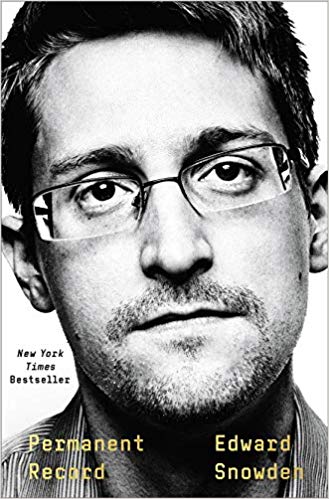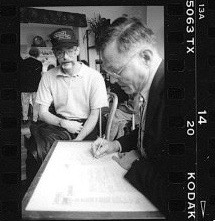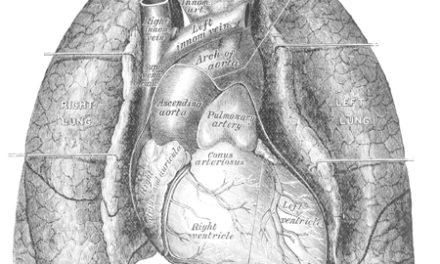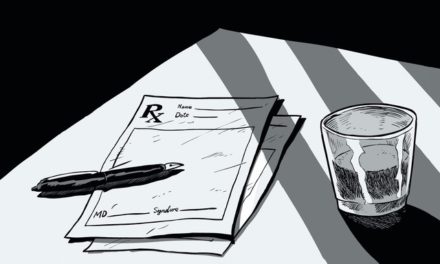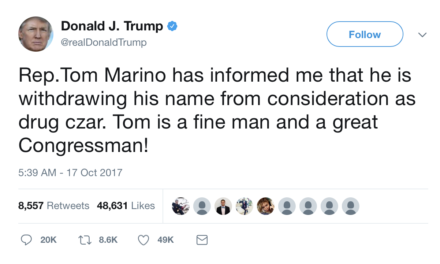When Edward Snowden was a tyke in North Carolina, his father, an engineer in the Coast Guard, got a Commodore 64. One night little Ed saw him playing a rudimentary game in the den and he was instantly enthralled by computers. After the family moved to the Beltway, his father got a Compaq Presario 425. “From the moment it appeared, the computer and I were inseparable. If previously I’d been loath to go outside and kick around a ball, now the very idea seemed ludicrous.”
In his early teens he started playing MMORPGs (massive multiplayer online role-playing games). He got into hacking. “All teenagers are hackers,” by Snowden’s expansive definition; he excelled. Instead of going to high school he acquired an education by pursuing subjects that interested him on the internet —a risky strategy that works out well for some. Ed Snowden certainly learned Civics —and how to write.
Permanent Record is unputdownable. I had no idea until page 198 that Snowden has epilepsy. He was 28 when he began experiencing brief space-outs that he didn’t recognize as petit mal seizures; then he had a grand-mal collapse. It was 2011 and he had just comprehended the extent of the US government’s mass surveillance program.
“I consulted with as many epilepsy specialists as I could find —the best part of working for Dell was the insurance: I had CT scans, MRIs, the works.” Snowden’s friend Lindsay Mills (“my stalwart angel”) drove him to appointments and did research online. “She Googled both allopathic and homeopathic treatments so intensely that basically all her Gmail ads were for epilepsy pharmaceuticals… The latter half of 2011 passed in a succession of seizures, and in countless doctors’ offices and hospitals. I was imaged, tested, and prescribed medications that stabilized my body but clouded my mind, turning me depressed, lethargic, and unable to focus.”
Snowden is fortunate in that he senses an aura when a seizure is coming on and can protect himself somewhat. One in four epilepsy patients have no such forewarnings.
As the top technologist for Dell’s CIA account, Snowden could work from home; but he couldn’t drive to meetings, so he took a disability leave. Homebound and watching TV, he followed news of the Arab Spring and calculated what the US had wrought since September 2001 (which had motivated him to work for the National SecurityAgency). “The previous 10 years had been a cavalcade of American-made tragedy: the forever war in Afghanistan, catastrophic regime change in Iraq, indefinite detentions at Guantanamo Bay, extraordinary renditions, torture, targeted killings of civilians —even of American civilians via drone strikes. Domestically there was the Homeland Securitization of everything… and from the Patriot Act on, the steady erosion of civil liberties, the very liberties we were allegedly fighting to protect.” He was still not thinking about blowing the whistle.
Advised by doctors that “the climate and more relaxed lifestyle in Hawaii might be beneficial for my epilepsy,” he took a step down on the career ladder in 2012 to work for the NSA in Oahu on a Dell Contract as “the sole employee of the aptly named Office of Information Sharing.” It was not till that summer, on his 29th birthday, that he knew he was going to act —but not how, exactly. His first step was to track down and read the documents showing exactly how the US was conducting mass surveillance on its citizens. “I had to understand exactly how the system worked before I could decide what, if anything, to do about it.” What he decided to do was copy the relevant documents for sharing with journalists who would share them with the American people.
Permanent Record is the autobiography of a rational thinker. Each decision Snowden makes is informed by a thought process that he explains to his readers. He doesn’t trust the New York Times to publicize his findings because of the paper’s “earlier conduct involving an important article on the government’s warrantless wiretapping program by Eric Lichtblau and James Risen.” The article had already been fact-checked and edited when executive editor Bill Keller showed it to the government. Snowden writes, “The Administration told Keller and the paper’s publisher, Arthur Sulzberger, without providing any evidence, that the Times would be emboldening America’s enemies and enabling terror if it went public with the information that the government was wiretapping American citizens without a warrant.” And so the piece was spiked.
Snowden reasoned, “If the Times… took my revelations, reported on them, submitted the reporting for review, and then suppressed its publication, I’d be sunk. Given the likelihood of my identification as the source, it would be tantamount to turning me in before any revelations were brought to the public.”
He contacted documentary filmmaker Laura Poitras and journalist Glenn Greenwald, enclosing a few items to establish the credibility of his claims. He chose Hong Kong as the place for their meeting after a process of elimination. “In geopolitical terms, it was the closest I could get to no-man’s-land, but with a vibrant media and protest culture, not to mention largely unfiltered internet.” 
Snowden looks like who he is — clear-eyed, totally straight, a man who never used illicit drugs, who tells the truth without deviation. Back when Stephen Colbert was funny he said, as the screen showed a close-up of Snowden, “The face of eeevilll!”
The next-to-last chapter of Permanent Record is “From the Diary of Lindsay Mills,” recounting what happened from her POV when Snowden left Hawaii in late May 2013. He had not told her that he was not coming back. He had not told her that he had discovered and could prove that the US government records and saves its own citizens’ every action and thought via their phones and computers. He had not told her that he was about to blow the whistle. Ed Snowden is so straight that he had never shared with the woman he loved any aspect of his intelligence work that he had been instructed to keep secret. She knew that he had been under serious stress for the past year —it showed—but she didn’t know the cause. She loved him.
He loved her. He knew exactly what he would be putting her through by fulfilling his responsibilities as a citizen: “the FBI interrogations, the surveillance, the press attention, the online harassment, the confusion and pain, the anger and sadness.” He urged his mother to take time off from her government job near DC and come for a visit to Oahu. He flew off to Hong Kong before she arrived (taking a brief medical leave from The Office). He figured Lindsay and his mother would support one another as it became evident, with each passing day, that he was not on an ordinary, work-related trip.
“Stopped in at K-Mart to get a lei,” Lindsay Mills writes in her diary. “Trying to welcome Wendy [Ed’s mom] with proper aloha spirit, but I’m pissed. Ed’s been planning his mother’s visit for weeks. He’s the one who invited her. I was hoping he’d be there when I woke up this morning…”
Two days later Mills writes : “She’s worried that he had another seizure, and then she started crying, and then I started crying. I just realized that I’m worried too. But instead of epilepsy, I’m thinking, What if he’s off having an affair? Who is she? Just try and get through this visit…”
At this point Snowden had just checked into the Mira Hotel in Hong Kong and notified Poitras and Greenwald that he’d made it. Poitras was keen to meet right away, but: “She was busy trying to get Glenn Greenwald to commit, trying to get him to buy a new laptop that he wouldn’t put online. Trying to get him to install encryption programs so we could better communicate. And there I was, in Hong Kong, watching the clock tick away the hours, watching the calendar tick off the days, beseeching, begging: please come before the NSA realizes I’ve been gone from work too long.”
It would be 10 days before they arrived. Ewan MacAskill of the Guardian soon joined them, and from June 3-9 Snowden guided them through the digital archives exposing the NSA’s mass surveillance program.
Lindsay Mills got the news on June 9 when a friend called to ask if she was okay. A video of Ed being interviewed by Glenn Greenwald, shot in the hotel room by Laura Poitras, was ricocheting around the internet. Lindsay went online: “I calmly waited for the 12-minute YouTube video to load. And then there he was. Real. Alive. I was shocked. He looked thin, but he sounded like his old self. The old Ed, confident and strong. Like how he was before this last tough year. This was the man I loved.”
On June 13 Edward Snowden was charged with violating the Espionage Act by the US government. The State Department pulled his passport, stranding him in Russia (which he’d thought would be a stopover after leaving Hong Kong). Lindsay joined him there in 2014. She had come to understand that he’d kept his project to himself to protect her and not because he didn’t trust her. They were married in 2017. They live in Moscow. Their residency permit will have to be renewed in 2020.
Permanent Record must be a little confusing to Democrats preoccupied with impeaching Donald Trump. They have lionized the Intelligence Community and its honchos such as James Clapper, whose lying to Congress in early 2013 Showden describes matter-of-factly:
“James Clapper, then the Director of National Intelligence, testified under oath to the US Senate Select Committee on Intelligence that the NSA did not engage in bulk collection of the communications of American citizens. To the question, ‘Does the NSA collect any type of data at all on millions or hundreds of millions of Americans?’ Clapper replied, ‘No sir,’ and then added, ‘There are cases where they could inadvertently perhaps collect, but not wittingly.’ That was a witting, bald-faced lie, of course, not just to Congress but to the American people.”
It would soon be exposed by the heaviest hack of all time.

